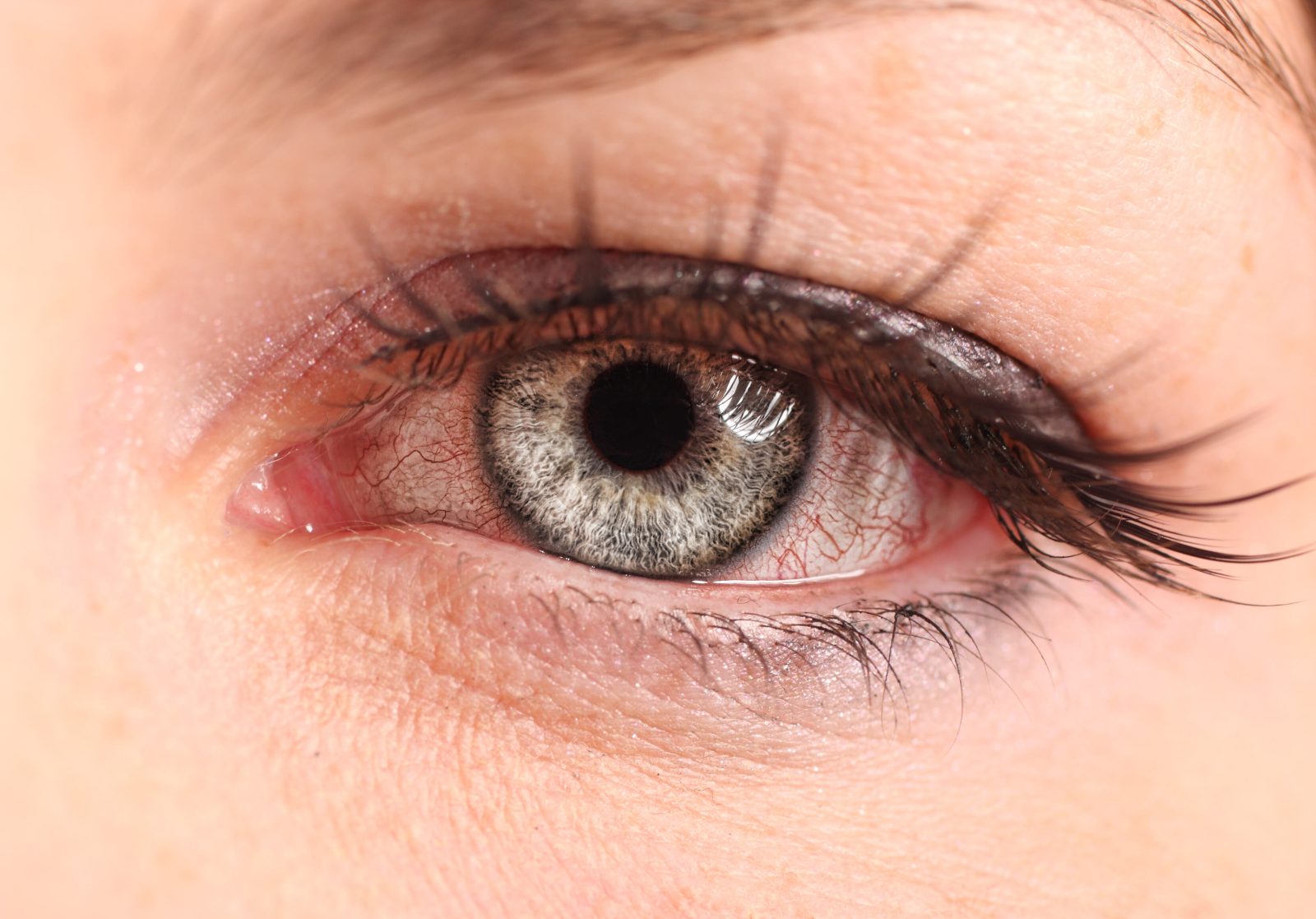Viraj J. Mehta, MD, MBA is an Oculofacial Plastics and Orbit expert, who serves a local and an international community at his practice near Washington, D.C. Born and raised in Cincinnati, OH, Dr. Mehta attended Cornell University for undergraduate and business school. He went on to complete his medical education and training at top institutions across the country, including Case Western Reserve University School of Medicine, Memorial Sloan Kettering Cancer Center, and Mayo Clinic.
 Photo Credit: Shutterstock
Photo Credit: Shutterstock
Conjunctivitis, also known as "pink eye," is what we know to be the viral infection that causes one or both our eyes to be red, irritated, tearing, and sometimes have discharge. Due to its commonality and contagiousness, pink eye is talked about often. But, unfortunately, just like many viruses, the facts spread are not always true. To learn the facts, Haute Beauty sat down with Haute Beauty expert Dr. Viraj Mehta to find out. Here's what he had to say:
What is conjunctivas?
The conjunctiva is the thin, clear layer of tissue that covers the white part of your eye. Conjunctivitis is a general term that means the conjunctiva is inflamed for many reasons (usually from allergies or infection).
What are the three leading causes of conjunctivitis?
The three leading causes are viral, allergic and bacterial. The most common causes are usually viral or allergic. The great news is that conjunctivitis is generally self-limited and rarely leads to permanent eye problems, though it can be very annoying. It's important to see an ophthalmologist your conjunctivitis does not resolve with over-the-counter treatments or if you have any severe symptoms.
How contagious is pink eye? What are the symptoms?
When we think of conjunctivitis, we usually refer to a viral source. The primary virus that causes conjunctivitis is the common cold virus or Adenovirus. This virus, and therefore conjunctivitis or pink eye, is very contagious and can be spread easily with exposure to an infected person. People with adenoviral pink eye can have eye redness, crusting, tearing, itching, and mild discharge. It typically affects one eye and may affect the other one a few days later. People may also have, or may recover, from a sore throat, cough, or other upper respiratory cold-like symptoms.
Conjunctivitis caused by bacteria is less common and can be seen in people that wear contact lenses, have some eye injury or have direct exposure to an infected person. Symptoms of bacterial conjunctivitis are usually more severe than viral, typically with a more purulent (pus-like) discharge. The main cause in adults of bacterial conjunctivitis is sexually transmitted bacteria, like gonorrhea or chlamydia. People may also get bacterial conjunctivitis from contaminated contact lenses.
 Photo Credit: Shutterstock
Photo Credit: Shutterstock
How can pink eye be prevented?
The best way to prevent viral or bacterial pink eye is to wash your hands thoroughly and frequently, avoid exposure to people with cold symptoms, and use clean towels to wash your face. For allergic cases, avoiding the allergy that triggers conjunctivitis is essential. This may mean starting over-the-counter allergy medications or eye drops if you are prone to seasonal allergies. Also, having good contact-lens hygiene can reduce the risk of bacterial conjunctivitis.
How can you treat pink eye?
Viral pink eye is usually self-limited. Antibiotics do not help in these cases. Symptoms will just resolve in 5-14 days. You can use over-the-counter artificial tears, cool compresses, and allergy drops to help mitigate symptoms. If symptoms persist after 1-2 weeks, or if they are very severe, it's best to see your ophthalmologist see if other prescription medications may help. There are rare cases of Herpes conjunctivitis (either Zoster or Simplex) in which case it is even more important to get examined by a physician.
Is it true that if you flatulence on your pillow and sleep on it you will get pink eye?
It is very, very unlikely to get pink eye from flatulence! Flatulence is typically just a release of gas, usually without any release of bacteria or viruses. Even if some were released, they likely wouldn't live long outside the body. So flatulence, particularly with clothes on, is not likely to cause any pink eye!
In many cases, conjunctivitis or pink eye will resolve on its own without causing any damage. However, there are other, though rare, causes for conjunctivitis. As with any condition, if symptoms do not improve, or if your symptoms are severe enough to cause pain or vision loss, it's essential to see an ophthalmologist to determine the cause and proper treatment.






















